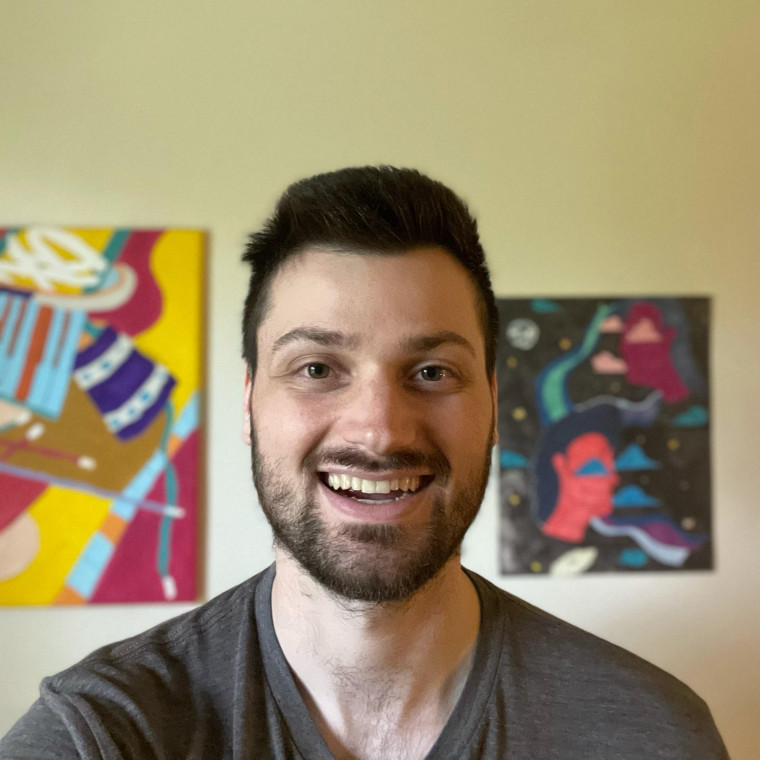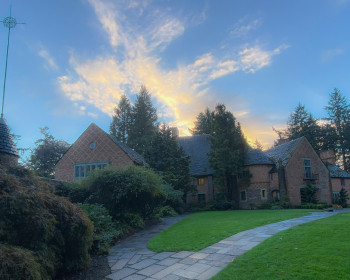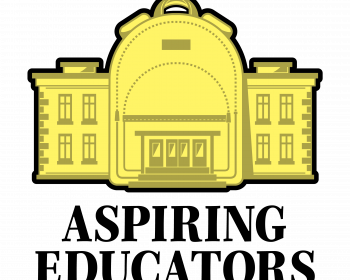Ben Kolligs

Pronouns
Degree and Class Year
Hometown
Major
Minor
Extracurriculars
What three words would you use to describe L&C?
What made you want to come to Lewis & Clark?
I was interested in astronomy, and wanted to go to a school that had a telescope. Perhaps more important was the desire to have a curriculum that would enable me to explore multiple interests. Lewis & Clark fit the bill on both fronts, and while I didn’t end up doing much astronomy, I loved how I was able to take physics classes and dance classes simultaneously. Not to mention once I saw the gorgeous campus at L&C, the case was closed.
How do you describe the liberal arts?
The liberal arts provide a basis for understanding the motivation for human endeavors, and understanding those motivations in the context of the human condition. For example, I took Russian Laughter: Literature and Film, and learned why someone in Russia might want to produce a work of comedic art. While the comedic art itself was enjoyable, we focused on a layer above it; the motivations an author may have for writing in this way, and what laughter and satire does for people. This exploration of why people do what they do naturally leads to widened horizons and gives one an appreciation for different areas of human cultures. For myself, as an robotics engineer, the liberal arts are key to understanding how nontechnical folks might see a certain engineering project, and consider the reasons why building a particular project is or is not necessary. If I had to sum up liberal arts in a word, it would be context.
Why did you major in physics?
Growing up as a very curious person, I wanted to understand the universe. My family exposed me to a lot of the great space media of the later 20th century like Star Trek, Star Wars, and Doctor Who. These works inspired me to pursue science to try and bring about some of the wonders I witnessed in science fiction. At Lewis & Clark, I learned that I wanted to use my knowledge to build things, so I thought about a path toward engineering. I also thought that having a strong physics background would be invaluable. Now that I’m in graduate school for robotics engineering, I can say this hypothesis was correct.
What was your favorite class? How did it expand your knowledge?
This is a hard one, because I took a lot of great courses at L&C. I think I’ll have to go with Contact Improvisation, which was a dance class taught by Instructor Eric Nordstrom. It was a great way for me to be creative between my physics classes, and I loved spending time in the Fir Acres space.
Where did you find community on campus?
I found community in the physics department while working on homework with my fellow Olin dwellers. For all four years, I was also part of the improv troupe Scripted, which I loved. This taught me about performing and live theatre, and introduced me to a lot of lovely and hilarious people. During my senior year, I spent time in the Bates Center for Entrepreneurship and Leadership where I met a lot of fantastic people. In fact, the Bates Center is where I landed my first job out of college as a robotics engineer, and started me on the path toward robotics!
Who was your mentor on campus? Why do you consider this person your mentor?
I consider Assistant Professor of Physics Mohamed Anber to be my academic mentor on campus. I performed research with him during my junior and senior years at L&C. Mohamed taught me a lot about performing research, and about physics in general. He helped me decide where to apply to grad school as well, and gave me perspective on what programs I would be looking for. Chrys Hutchings has been my entrepreneurial mentor in many ways, from helping me to prepare for job interviews, to making introductions to interesting people. Chrys helped me develop the confidence to forge my own path, and the skills to enable me to do so.
Congratulations on your acceptance into one of the best robotics programs in the country! How did it feel when you found out you were admitted?
Thank you! I was overjoyed when I got into The Robotics Institute at Carnegie Mellon University! I knew that I would be able to pursue the next steps of my career through CMU. The first year was intellectually challenging, and I’ve met lots of awesome folks and had a blast so far!
What have you been working on in your robotics program?
I have been taking robotics courses such as Robot Mobility, Computer Vision, Robot Autonomy, and Robotic Manipulation and Control. The capstone for my program involves development and construction of a full robotic system as part of a team. My team’s robot for this project is a search and rescue robot called Dragoon! Outside of classes, I’ve been working on a lunar rover called MoonRanger, which is slated for touchdown in 2023, and have been involved in the CMU Swartz Center for Entrepreneurship as a Swartz Entrepreneurial Fellow. There’s a lot of extremely cool stuff going on here, and I wish I had time to explore it all!
What interests you the most about robotics?
True to my roots at Lewis & Clark, I have a wide swath of interests within engineering. I enjoy writing software, electrical circuit design, and mechanical design. Robotics requires working knowledge of all three. That said, I am especially interested in designing the software behind autonomous robotic behaviors, and real-time control of a complicated physical system.
How did Lewis & Clark prepare you for grad school?
L&C prepared me for grad school by giving me experience in rigorous study. My research work with Mohamed and my coursework in the physics and math departments gave me exposure to what academic rigor means and what to expect when I returned to school. Additionally, I think the way L&C fostered collaboration was very important. My program requires a lot of collaboration to succeed in it.
Now that you’ve been out of college for a while, what would you say is the most important thing you learned at Lewis & Clark?
L&C taught me the value of being multifaceted. If your desired path through life doesn’t exist, then you have the tools to figure out how to create it. I also learned about the importance of saying yes to new opportunities, which I have thought about often as I make my way toward my career goals.
What are your career goals?
After my program, I would like to join a robotics company. This would preferably be a smaller company working on robotics research for autonomous mobile robotics applications or manipulation. After gathering experience for several years, I would like to start my own company in the robotics space. There are emerging markets all over the place for robotics. My heart lies with exploratory robotics though, which I think is interesting and useful. This includes robots that go to space, robots that go to volcanoes, and robots that venture to places that humans simply cannot.
More Admissions Stories
Admissions is located in Frank Manor House on the Undergraduate Campus.
MSC: 32
email admissions@lclark.edu
voice 503-768-7040
fax 503-768-7055
Vice President of Admissions and Financial Aid
Eric Staab
Admissions
Lewis & Clark
615 S. Palatine Hill Road MSC 32
Portland OR 97219

